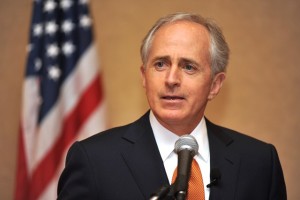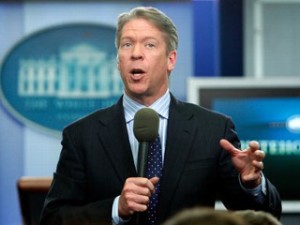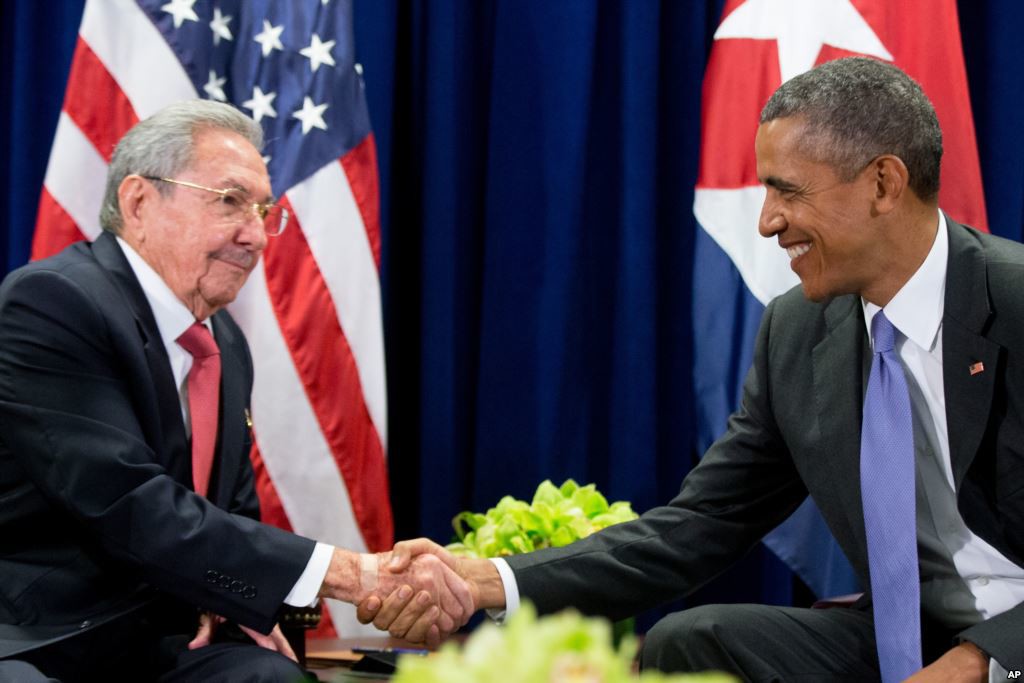
Heartland voters support changes in Cuba policy
WASHINGTON, D.C. – A poll of voters in four politically critical states—Indiana, Iowa, Ohio and Tennessee—found that “a majority of Americans in these heartland states …support U.S. President Barack Obama’s decision to restore diplomatic ties with Cuba and are in favor of lifting all restrictions on travel to the island.” The poll was conducted by Glen Bloger, a leading Republican political strategist and pollster, on behalf of the Atlantic Council, in partnership with Engage Cuba—a lobby group that supports the recent changes in Cuba policy and includes among its supporters a wide range of agricultural and industrial trade associations.
Ohio is widely considered a bellwether state in presidential elections, Iowa is the first state to speak in that race, Tennessee’s Senator Bob Corker is the Chair of the Senate Foreign Relations Committee, and Indiana is often considered a “swing state,” this year with an open Senate seat.

Despite the fact that 70 percent of the respondents believe that “the United States is on the wrong track”, and that the respondents “are not particularly fond of Cuba”, “68 percent support the restoration of diplomatic ties with Cuba, and 67 percent (54 percent among Republicans and 83 percent among Democrats) support the removal of travel restrictions.” A majority (58% vs. 35%) also support ending the trade embargo, and even the Republicans are fairly closely split on this issue (42% in favor, 51% against). The fact that support for changes in Cuba policy cut across the conservative/liberal divide, and are “no longer third rail issues,” is illustrated by Ohio. The state had the highest support for the policy changes (80%), yet only 24% of its voters support the announced deal with Iran, according to recent polls.
Peter Schechter, of the Atlantic Council, moderated a Nov. 17 panel discussion on the results of the poll and the US-Cuba relationship with three experts, in addition to Mr. Bolger: Major Garrett, Chief White House Correspondent for CBS News; Bill Lane, Senior Director for Global Government and Corporate Affairs at Caterpillar Inc.; and Steven Law, President and CEO of American Crossroads and a Senior Advisor at Engage Cuba.

After summarizing the results of the poll, Bolger remarked that it was time to test whether “smothering oppression with freedom” can work better than the previous policy.
Schechter noted that “we are at a moment of huge change,” and that the results of the poll “begin the process of giving permission for Corker [Chair of Senate Foreign Relations Committee] to open the issue with the Republican Conference.”
Garrett remarked that despite discomfort among some Republicans about the changes, Cuba doesn’t come up on the presidential campaign trail. “If Marco Rubio thought that it was a vote-getter in Iowa, New Hampshire or anywhere else you can be certain that he would talk about it. He does not.”
Lane, from Caterpillar, stressed that unilateral sanctions such as those on Cuba have never worked, “going back to the Peloponnesian War.” Mr. Law agreed, noting that “all this time we thought we were isolating Cuba, [when] we were the ones who were isolated,” noting that the Europeans, Japanese, and Chinese have been “fully engaged” in Cuba.
The past policy has “gone beyond the ridiculous,” also remarked Lane. “When you take the embargo off the table, you will put far more pressure on Cuba,” where “a lot has to change.” But the embargo “has to go first.” His company wants to “export to Cuba, we want to trade with Cuba, and we think by doing so a lot of positive things will happen.”
Law, a highly influential Republican strategist, was of the opinion that, despite the logjam in Congress, the embargo may well be addressed in 2016, “if a presidential nominee” wants the issue “off the table” so “he doesn’t have to face it” in his first few months in office. He stressed that “there is an inevitability about this issue … it can’t go on like this.” Also, he noted that the poll is important because representatives in their districts are “hearing from constituents” that they want to visit and do business with Cuba.

All the speakers agreed that advocacy on the issue will be critical in getting it to a “tipping point”, even though elected officials “probably know that it is not a dangerous issue for them politically,” according to Law.
All seemed to agree that President Obama will visit the island before the end of his term; the only disagreement seemed to be when that visit might happen. CBS’ Garrett felt that it would happen after the election, during the lame-duck period, while Lane of Caterpillar felt that it would happen sooner, as early as next spring.

